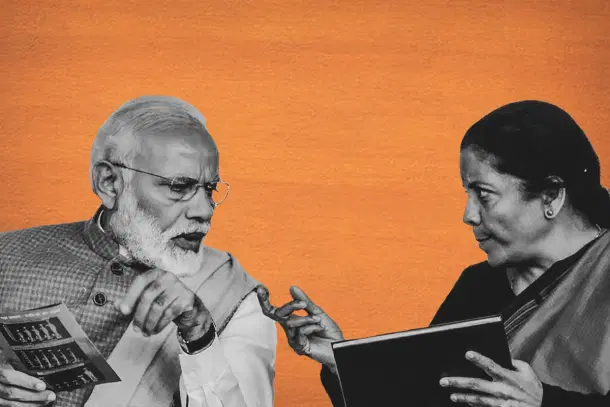News Brief
Centre Plans To Provide Rs 10,000 Crore In Incentives To States For Implementing Land-Related Reforms
Kuldeep Negi
Aug 16, 2024, 12:00 PM | Updated 12:00 PM IST
Save & read from anywhere!
Bookmark stories for easy access on any device or the Swarajya app.


The Central government is reportedly planning to provide states with Rs 10,000 crore as incentives for implementing land-related reforms across rural and urban areas, and Rs 5,000 crore for establishing a Farmers' Registry in the financial year 2024-25 (FY25).
These funds are likely to be provided under the Scheme for Special Assistance to States for Capital Investment 2024-25.
The Ministry of Finance has already finalised the guidelines for this scheme and circulated them to various states on 9 August, The Indian Express reported citing sources.
Finance Minister Nirmala Sitharaman had announced in her Budget Speech on 23 July that the Centre would offer incentives to states for undertaking land-related reforms.
She further also announced that details of six crore farmers and their lands will be included in the farmer and land registries.
The states will reportedly be required to implement various land-related reforms in rural areas, including the assignment of a Unique Land Parcel Identification Number (ULPIN) or Bhu-Aadhaar for all lands, digitisation of cadastral maps, surveying of map sub-divisions based on current ownership, and the creation of a land registry.
In urban areas, financial incentives will support the digitisation of land records through GIS mapping and the development of an IT-based system for property record administration, updating, and tax administration.
Additionally, the Centre is also planning to provide Rs 5,000 crore towards the construction of hostels for working women.
In her Budget Speech, Sitharaman outlined plans to “facilitate higher participation of women in the workforce through the establishment of working women’s hostels in collaboration with industry, and setting up crèches.”
As per the guidelines, the state governments are expected to either provide the land for these hostels at no cost or bear the expenses associated with acquiring the land.
The guidelines further recommend that states adopt a Public-Private Partnership (PPP) model for operating and maintaining these hostels. While ownership of the hostels would remain with the state governments, private entities would be responsible for their operation and upkeep.
Out of the Rs 5,000 crore allocated for building working women’s hostels, Uttar Pradesh is set to receive the largest share of Rs 382 crore, with Madhya Pradesh receiving Rs 284 crore, and Assam Rs 226 crore.
Moreover, the Centre has outlined additional financial support: Rs 2,000 crore for the global development of iconic tourist centers; Rs 3,000 crore for old vehicle scrapping incentives; Rs 15,000 crore for boosting industrial growth; Rs 1,000 crore for the development of the National Capital Region (NCR); Rs 15,000 crore for states' contributions to Centrally Sponsored Schemes, including Urban and Rural Infrastructure Projects; Rs 4,000 crore in incentives for the implementation of the SNA Sparsh model for the timely release of funds under Centrally Sponsored Schemes; and Rs 25,000 crore as incentives for achieving capital expenditure targets for 2024-25.
The Rs 1,000 crore designated for NCR development will be equally distributed among the three states of Haryana, Uttar Pradesh, and Rajasthan.
Kuldeep is Senior Editor (Newsroom) at Swarajya. He tweets at @kaydnegi.





